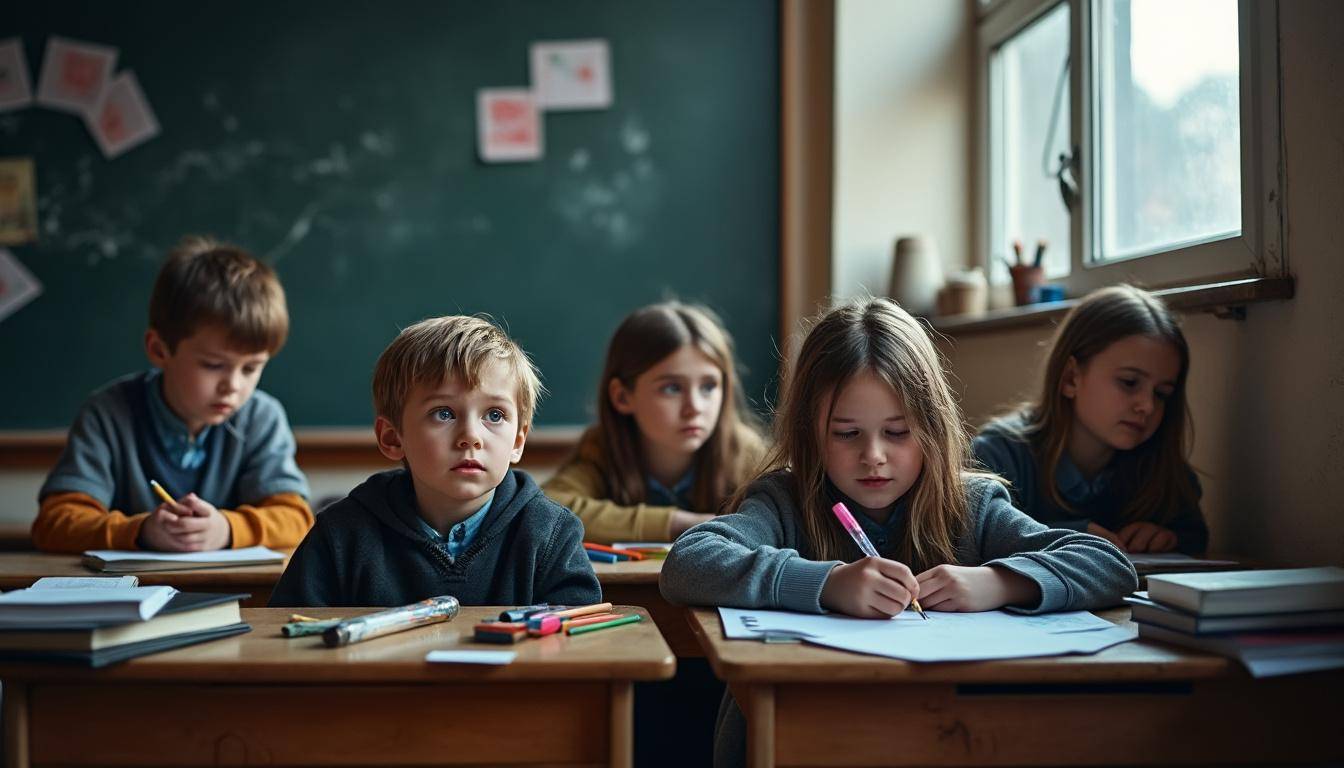For more than five years, Ukrainian children have faced unprecedented disruptions to their education due to the compounding crises of the COVID-19 pandemic and ongoing armed conflict. This prolonged interruption has deeply affected their academic progress and, critically, their emotional well-being. The destruction of educational infrastructure, displacement, and difficulties accessing remote learning have left millions of young learners behind, while emotional distress poses significant barriers to their ability to thrive. Understanding these challenges is essential for educators, parents, and humanitarian organizations committed to supporting these children’s futures and fostering resilience.
Destruction and Disruption: How the War Has Impacted Education in Ukraine
The war has inflicted devastating physical damage on Ukraine’s education system. Approximately 30% of educational buildings have been damaged, with over 365 schools completely destroyed since 2022, according to reports from Plan International. As a result, nearly 2 million school-aged children have experienced full school closures, and around 4.6 million face significant barriers to continuing their education.
With many schools unable to operate safely, education shifted to remote and hybrid learning models. However, frequent power outages and unreliable internet access have made it difficult for children—especially those in rural or conflict-affected areas—to maintain consistent engagement.
- Half of Ukraine’s educational infrastructure is non-functional.
- Remote learning is hindered by infrastructure and connectivity challenges.
- Younger children and those in remote villages fall further behind academically.
Emotional Instability Among Children: The Hidden Toll of Interrupted Education
The physical destruction of schools is only part of the story. Emotional and psychological consequences have profoundly affected children’s ability to learn. Laura Frigenti, Director-General of the Global Partnership for Education, highlights how this instability undermines children’s progress, noting that many require psycho-emotional support to cope with trauma and uncertainty.
Efforts to gather children safely in physical classrooms aim to rebuild social connections and foster emotional resilience. Unfortunately, frequent missile strikes and security concerns often make reunification impossible.
- Many children display symptoms of emotional distress affecting learning capacity.
- Psycho-emotional support is critical to help children recover.
- Safe, in-person learning environments are urgently needed but often unavailable.
Organizations such as UNICEF, Save the Children, War Child, and others continue to provide vital psycho-social support programs alongside educational interventions to address these compounded challenges.
Prolonged Learning Loss and Its Consequences for Ukrainian Youth
Data gathered by Plan International in early 2025 reveals alarming trends:
- One in five young people aged 15 to 24 has missed between one and two full years of schooling due to the conflict.
- Many children in grades 5 or 6 struggle with basic literacy after prolonged remote learning.
- Rural pupils lag on average four to five years behind their urban peers, highlighting disparities intensified by war.
This educational gap threatens Ukraine’s long-term recovery by limiting children’s opportunities for higher education and employment. Solid pathways to future skills development are essential, as emphasized by plans from the Ukrainian government to rebuild and modernize the educational system with a focus on integration into Europe’s labor market.
Strategies for Rebuilding Education and Supporting Children’s Futures
The Ukrainian Ministry of Education and Science is spearheading a development strategy aimed at reconstruction and human capital investment. Their objectives focus on equipping students with skills necessary to contribute effectively within a European context.
However, resource limitations pose significant barriers. To bolster efforts, there is a growing emphasis on partnerships involving:
- The private sector, to mobilize funds and innovations.
- International humanitarian agencies such as Education Cannot Wait, World Vision, and ChildFund providing support and advocacy.
- Community-based organizations like The Global Fund for Children and KidsRights addressing grassroots needs.
These collaborations, aligned with global initiatives like No Lost Generation, target both educational recovery and the emotional resilience of affected youth.
Lessons from Ukraine: Towards a Holistic Approach to Education in Crisis
The Ukrainian experience underscores the intersection of education, mental health, and socioeconomic stability in conflict settings. Ensuring that no child is left behind requires comprehensive strategies addressing:
- Access to safe physical or remote learning opportunities despite disruptions.
- Emotional support integrated into education to tackle trauma and stress.
- Equity targeting rural and marginalized children to bridge learning gaps.
- Community involvement to provide safe spaces and empower learners.
Stakeholders committed to children’s rights and education—including Plan International, War Child, and other key NGOs—play crucial roles in implementing such inclusive, adaptive responses.
For further insights on balancing educational needs with well-being, explore resources on striking harmony between education and children’s emotional health as well as contemporary challenges in broader settings featuring parallels to Ukraine’s situation, such as the rising costs of child-rearing in urban India (read more) and youth school anxiety in Northern Ireland (learn about school anxiety trends).


